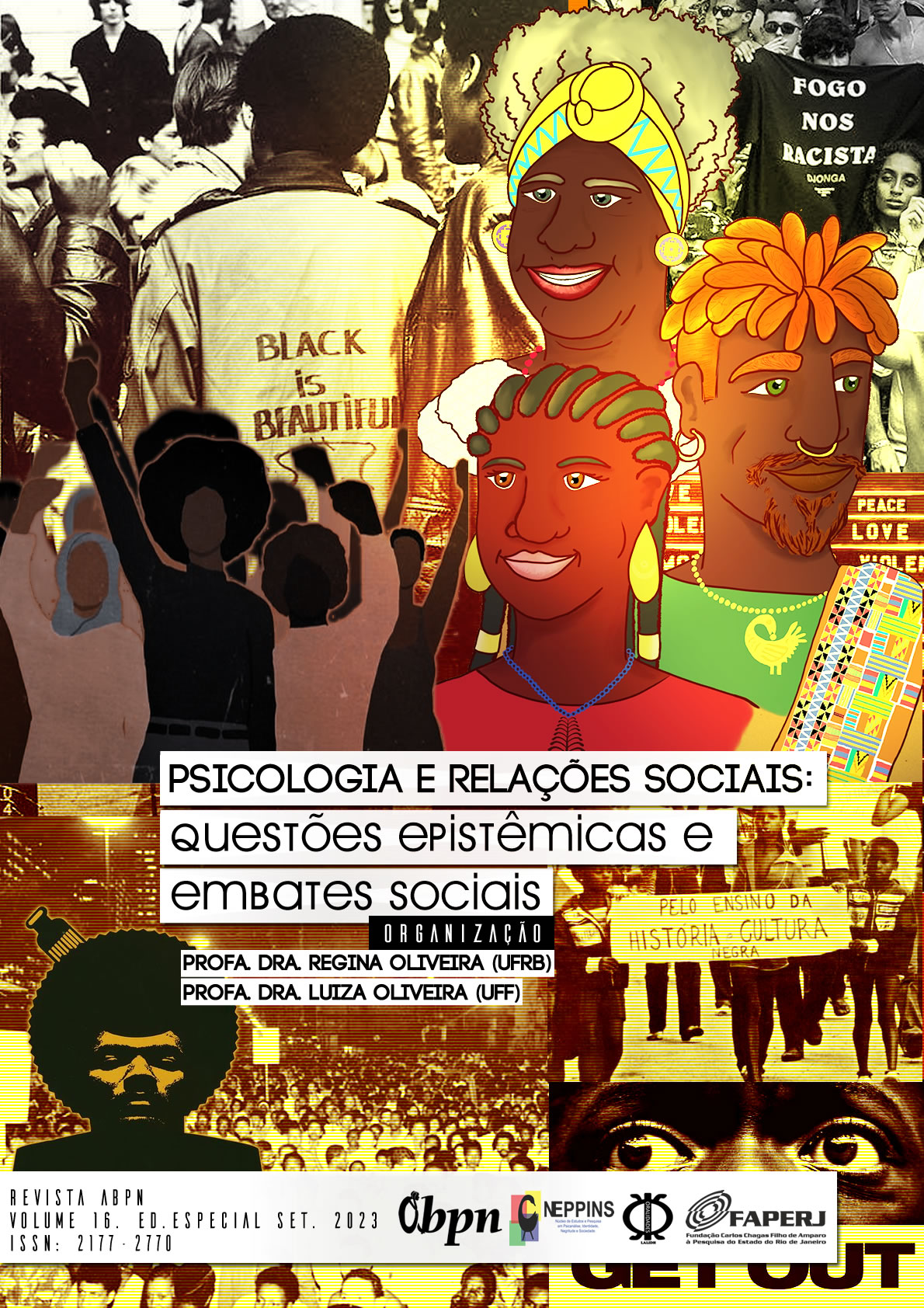TRAINING IN CLINICAL PSYCHOLOGY AND ETHNIC-RACIAL RELATIONS: REPORT OF A COLLECTIVE CONSTRUCTION
Main Article Content
Abstract
This article aims to report an experience in the process of training psychologists, based on the analysis of a subject taught in the undergraduate course. It was an optional course that included a class of 25 undergraduate psychology students. The pedagogical strategies adopted were based on the perspective of active methodologies; in dialogical, participatory and awareness-raising education proposed by Paulo Freire; and in the pedagogical perspective proposed by bell hooks. Throughout the course, it was possible to observe the class's engagement in the teaching-learning process in order to build, individually and collectively, knowledge, skills, understandings and experiences about the dynamics of ethnic-racial relations and work in clinical psychology. It is believed that the use of diverse pedagogical strategies contributed significantly to the process. We hope that the reflections woven inspire the construction of dialogues and training practices regarding ethnic-racial relations in psychology, especially in the area of clinical psychology.
Article Details

This work is licensed under a Creative Commons Attribution 4.0 International License.
Copyright Statement
- Authors retain copyright and grant the journal the right of first publication, with work simultaneously licensed under the Creative Commons Attribution License CC-BY 4.0 which allows the sharing of the work with acknowledgment of the authorship of the work and initial publication in this journal.
- Authors are authorized to enter into additional contracts separately for non-exclusive distribution of the version of the work published in this journal (eg, publishing in institutional repository or book chapter), with acknowledgment of authorship and initial publication in this journal.
- Authors are allowed and encouraged to post and distribute their work online (eg in institutional repositories or on their personal page) at any point before or during the editorial process, as this may lead to productive changes as well as increase impact and citation of published work (See The Effect of Free Access).

